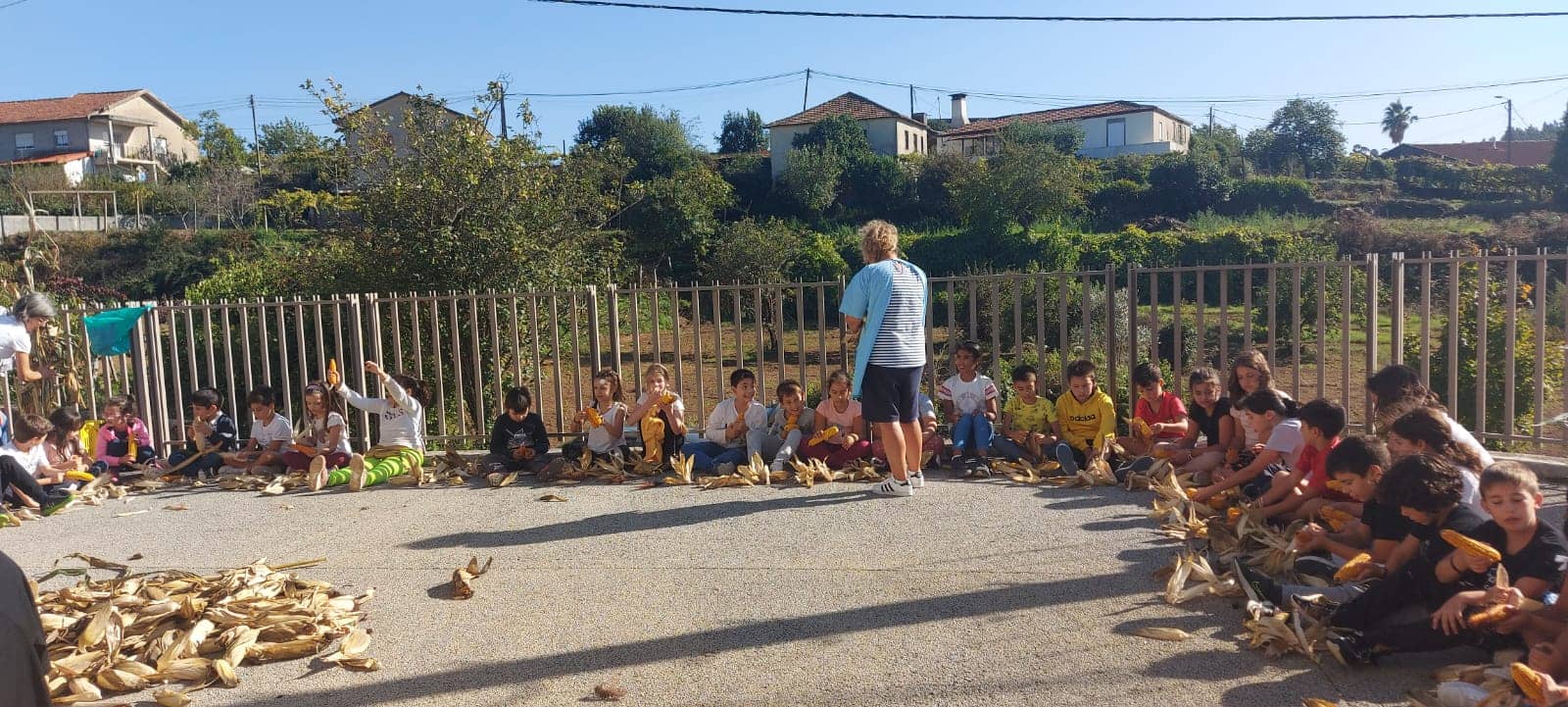by Teresa Cameira,Eduardo Naia & Carlos Piedade
Intro
AEG1 comprises four preschool establishments, two primary schools, two primary schools with integrated pre-school, one middle school, and one secondary school for about 2500 students.
Due to the vastness of the population it serves, many of these 10 establishments are spread over a geographical area somewhat dispersed in semi-rural or rural areas framed by beautiful natural scenery and where some authentic traditional crafts, traditions, and customs are still cherished and preserved. By the older people, mostly!
Both the school board and the city council, as well as some local associations, value this natural and cultural legacy and endeavor efforts to implement policies, develop activities and projects and promote volunteer programs to involve the younger generations and reinvigorate and energize this heritage which is part of our collective memory. We believe that the more we engage with our environment, the better we nurture it.
That is one of the reasons AEG1 embraced the Erasmus+ project Pride of Place (https://prideofplace.eu/), which lasted from 2018 to 2020 and represented a significant asset in encouraging young people’s connection and attachment to the place and fostering their sense of belonging. However, due to the successive lockdowns imposed by Covid 19 the opportunities to get out of the formal school context were less. Many of the activities thought of and planned within the project, and aimed to be set outdoors, had to be canceled.
Now steadily, teachers are trying to offer their students more situations to restore their connectivity with nature providing more outdoor classes and field trips, exposing them to different experiences that foster children’s knowledge of nature, connectivity with its elements, and encompass feelings of well-being and willingness to be pro-active. These situations can be a mere walk in the playground of the school to listen to the rustling of the Autumn leaves under their feet, observe the myriad of colors that leaves present us with and feel the happiness of running on such a beautiful gift that nature offers without asking for anything in return. Or it can be a more multipurpose and objective-structured activity that covers different areas of understanding. This is the case of an activity Desfolhada[1], which was carried out with primary school students.

By promoting activities and/or developing problem-based learning projects related to nature that put the student at the center of the learning process, we believe that, as an institution for educational purposes, we are playing our part in building citizens that value and cherish, respect and feel privileged for the world around them.
[1] One of the most joyful agricultural work in our country, but also one increasingly rare. After the maize is harvested, it is taken to the threshing floor of the farmer, who invites his family, neighbors and friends to husk. This creates a moment of work and great entertainment, with singing and dancing to the sound of the concertina and the guitar. There is also a ritual associated to the Desfolhada: when someone finds the king corn (maize with red grains), all the participants shout “milho-rei” (king corn). Whoever finds it chooses someone to give a kiss or a hug.




